“Your home for fearless film reviews, the latest entertainment news, and unfiltered movie rants.”
Marvel’s Thunderbolts Review: Misfits, Mayhem, and a Shocking Death
Thunderbolts (2025) brings the MCU back down to Earth with a gritty, grounded story about broken heroes on a doomed mission. Led by Florence Pugh’s Yelena and featuring standout performances from Lewis Pullman and David Harbour, the film explores trauma, betrayal, and redemption through Marvel’s most morally gray team yet. With no multiverse chaos, this Phase Five entry focuses on character-driven storytelling, emotional depth, and darker themes. While it stumbles with pacing and controversial choices—like Taskmaster’s abrupt death—Thunderbolts is a bold, flawed, and surprisingly heartfelt addition to the MCU. A must-watch for fans craving something different from Marvel.
MOVIE
The Tipsy Critic
5/8/20255 min read
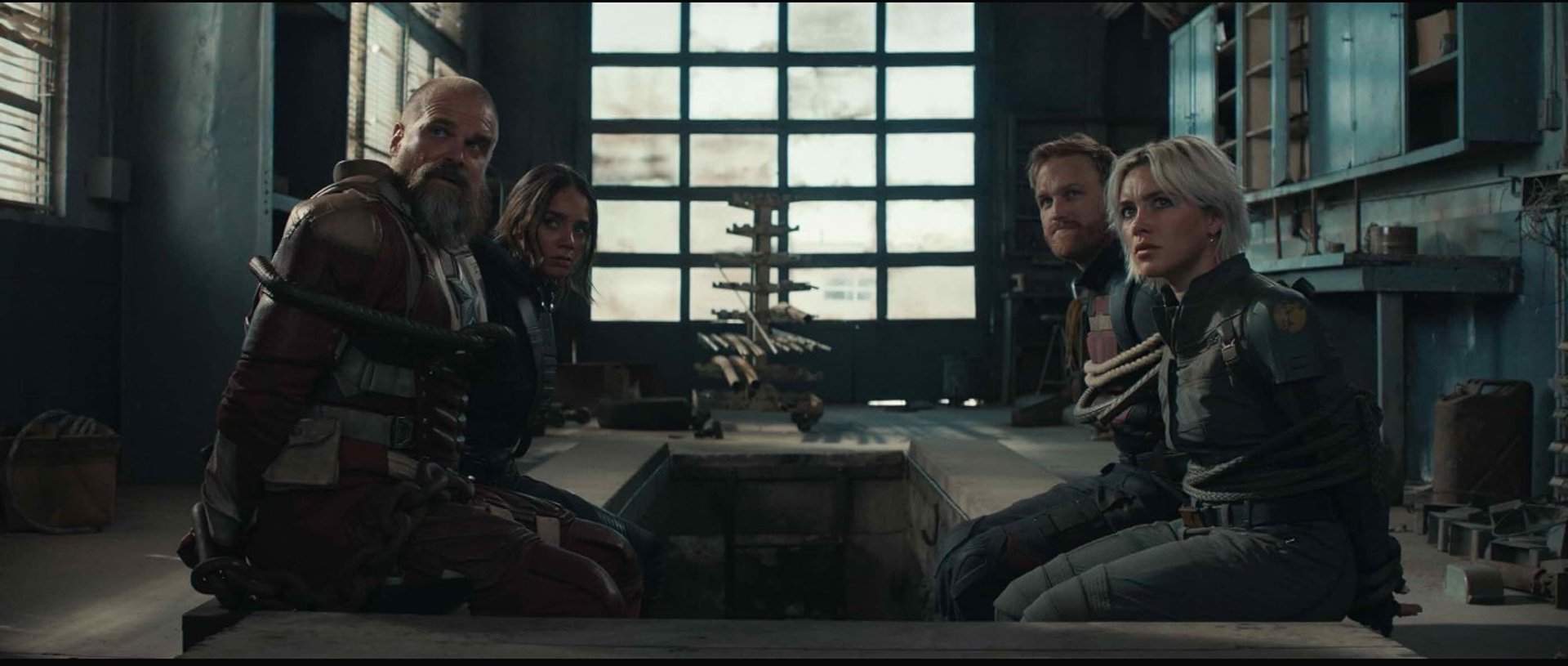
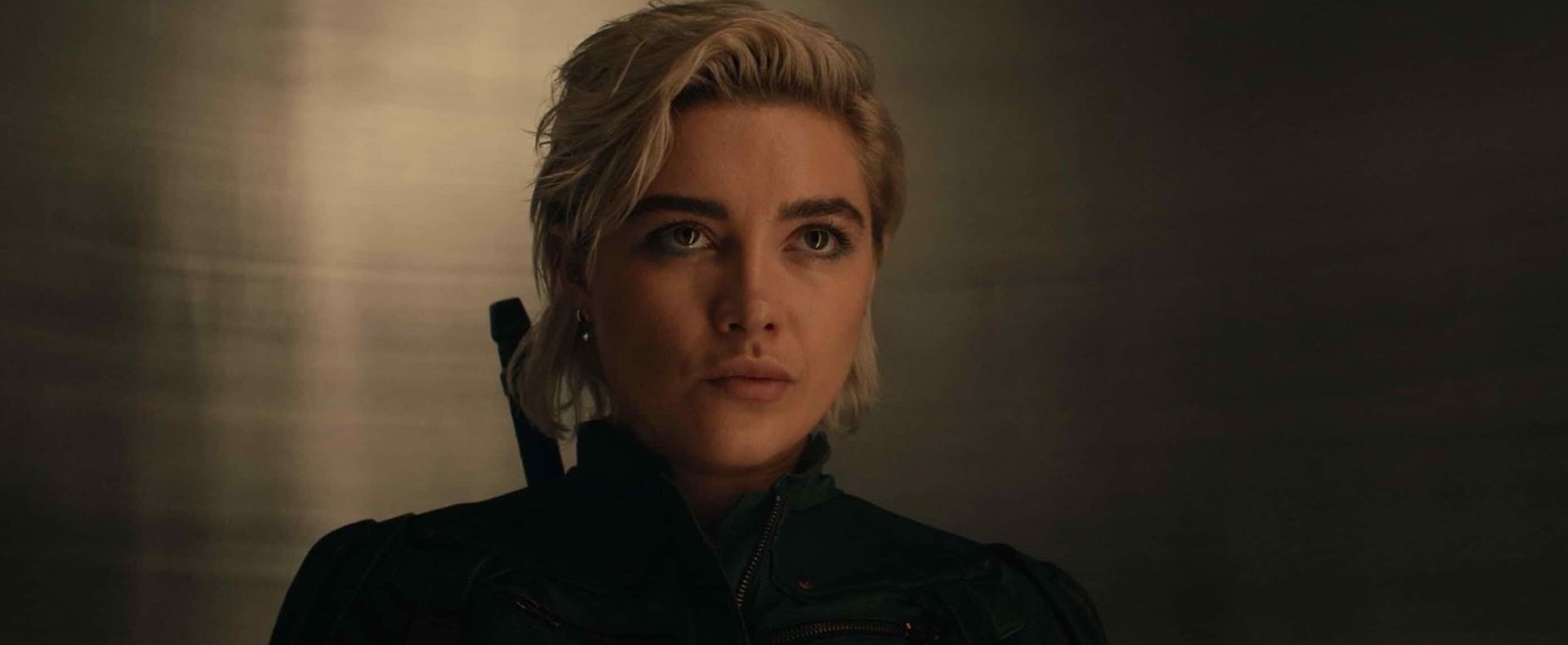
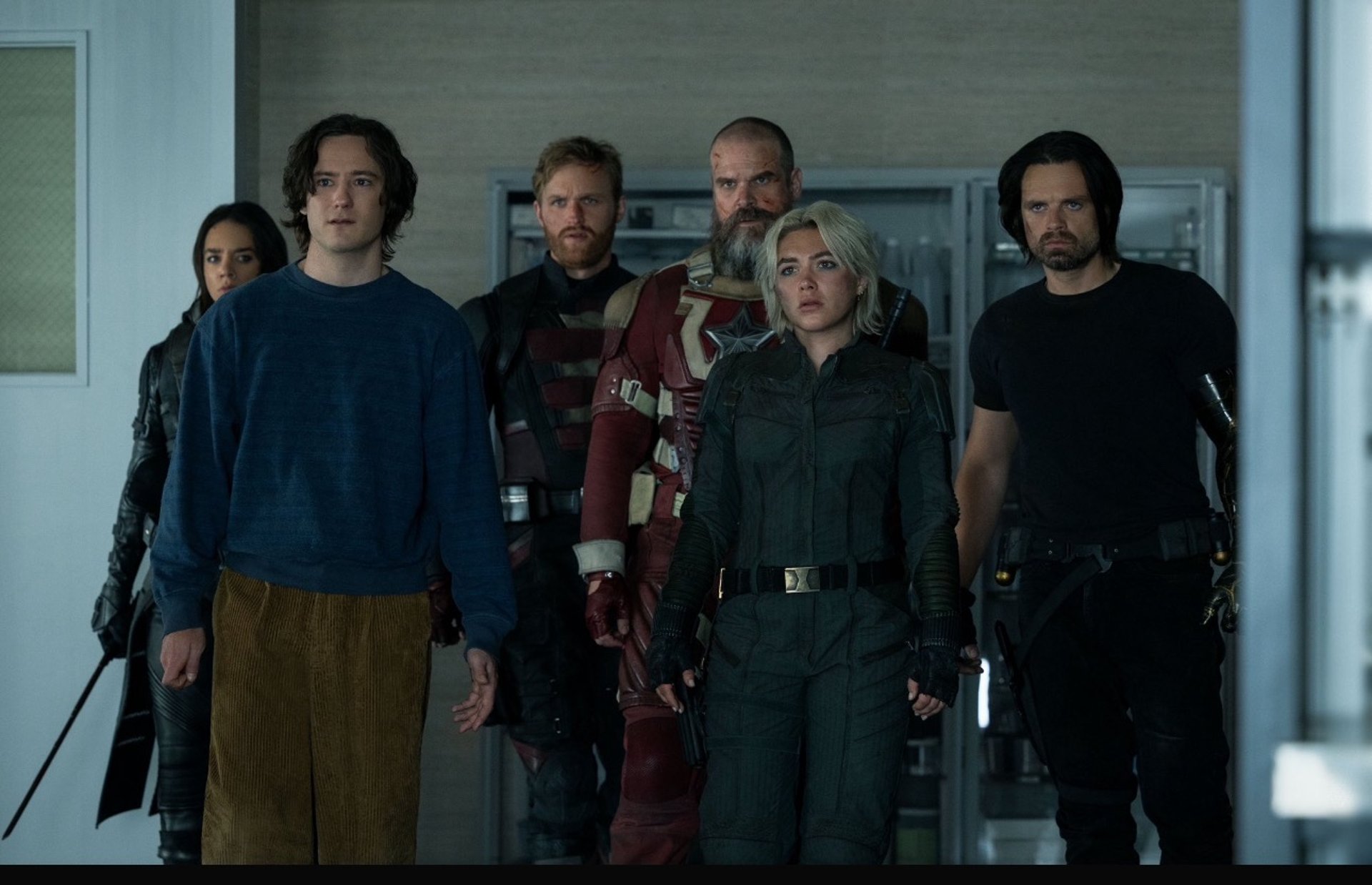
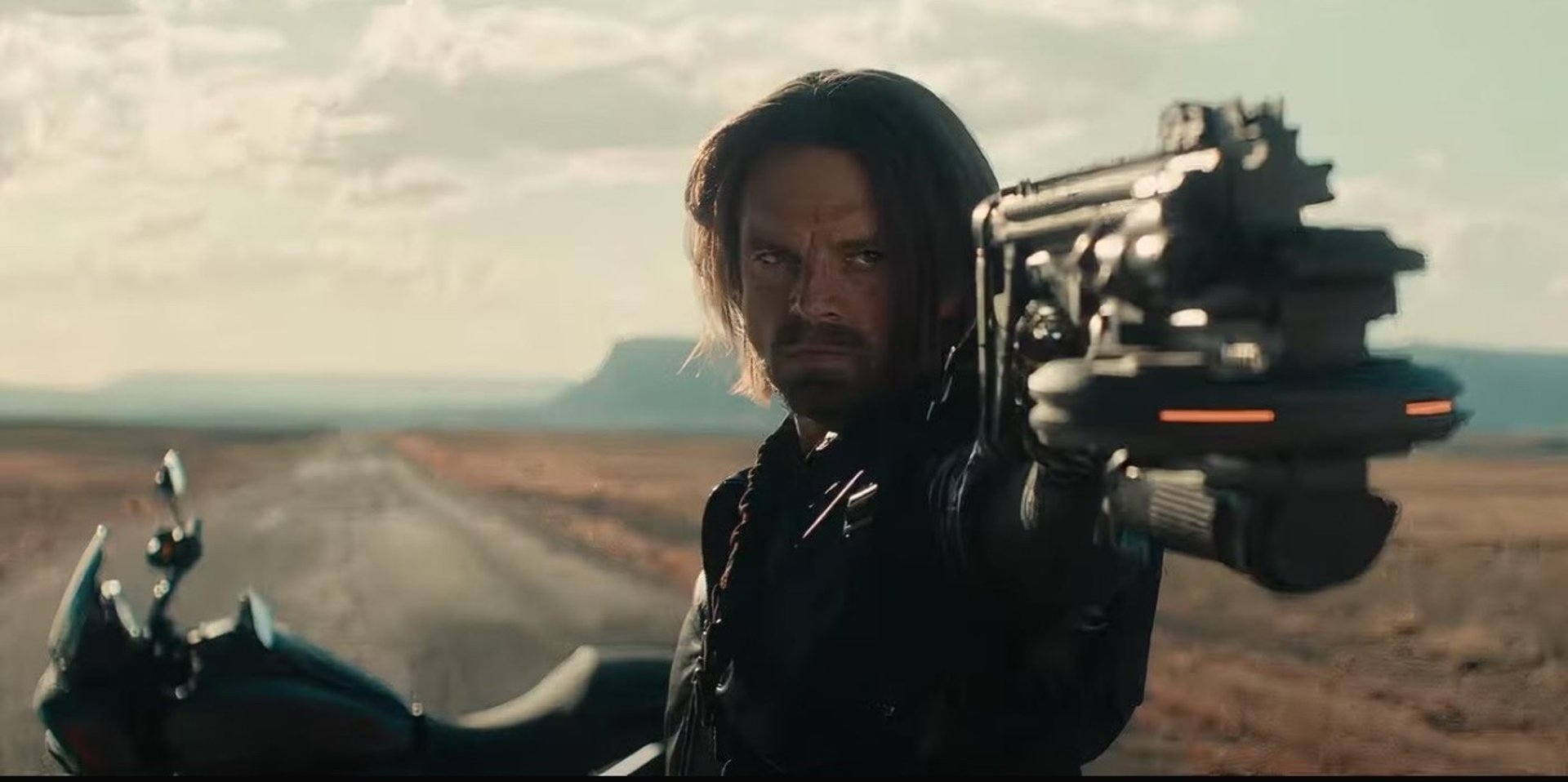
Thunderbolts (2025)
Release Date: May 2, 2025
Director: Jake Schreier
Starring: Florence Pugh, Sebastian Stan, David Harbour, Wyatt Russell, Lewis Pullman, Julia Louis-Dreyfus, Hannah John-Kamen, Olga Kurylenko, Geraldine Viswanathan
The Plot: Broken Heroes, Shadowed Legacies, and a Glimpse of Hope
Marvel's Phase Five has been, to put it gently, rocky—and Thunderbolts feels like a deliberate attempt to bring the chaos back down to Earth. Literally. No multiverses, no timelines, no cosmic world-ending stakes—just a bunch of morally gray misfits wrestling with their own trauma while being sent on a mission they weren’t meant to survive.
The government-assembled team is led by Yelena Belova (Florence Pugh), Bucky Barnes (Sebastian Stan), Red Guardian (David Harbour), U.S. Agent (Wyatt Russell), Ghost (Hannah John-Kamen), and the quiet wildcard Bob (Lewis Pullman), all managed by a predictably shady Valentina Allegra de Fontaine (Julia Louis-Dreyfus). Their mission? Take each other out under the pretense of eliminating a global threat. Of course, that doesn't go as planned.
Once the truth unravels—that Bob’s fractured psyche is splitting into a deadly alter-ego called The Void—the team’s focus shifts from mistrust to survival, and something surprisingly heartfelt starts to emerge from all the betrayal, banter, and bloodshed. Thunderbolts becomes less about saving the world and more about saving themselves—from what they’ve done and who they’re becoming.
It’s gritty, surprisingly grounded, and a lot more emotionally layered than most Marvel entries in recent years. And yet... it’s still a Marvel movie, with all the chaos, pacing issues, and third-act overkill that comes with the territory.
The Cast: Pugh Shines, Pullman Stuns, and Harbour Steals Every Scene
Florence Pugh once again proves she’s one of Marvel’s best casting choices post-Endgame. As Yelena, she anchors the film with a performance that’s both sharp and emotionally raw. She’s grieving, angry, and trying to lead a team that doesn’t want to be led—but she never loses the wry humor and edge that made her breakout in Black Widow.
But it’s Lewis Pullman as Bob who’s the biggest surprise. Playing a character caught between anxiety, alienation, and godlike power, Pullman walks a tightrope between sympathy and horror. His transformation into the Sentry—and the emergence of the Void—doesn’t just serve as a plot device. It’s a metaphor for mental illness, self-destruction, and the fear of hurting the people you care about. It’s ambitious. It doesn’t always land, but when it does, it hits hard.
David Harbour brings much-needed comic relief as the bumbling but lovable Red Guardian. His fatherly chaos balances Yelena’s grief and softens the movie’s darker edges. Wyatt Russell’s John Walker is still a mess of contradictions—and that’s what makes him interesting. He’s not trying to be redeemed, but he is trying to matter.
Sebastian Stan, unfortunately, gets the short end of the stick here. Bucky Barnes—arguably the most experienced and morally complex character on the team—feels underused. His arc is more implied than explored, and given what the character’s been through, it feels like a missed opportunity.
Ghost (Hannah John-Kamen) exists mostly in the background, and Olga Kurylenko’s Taskmaster (yes, she’s in this) barely has time to register before getting killed off in one of the movie’s most disappointing decisions. Her death is abrupt and feels like a waste of a character with far more potential.
The Vibe: Grimy, Grounded, and (Mostly) Gutsy
Visually, Thunderbolts strips away the gloss that defines most MCU fare. Gone are the oversaturated, rainbow-hued skyscapes of Quantumania or Multiverse of Madness. Here, things are bleak, desaturated, and stripped-down. Director Jake Schreier leans into the grit, aiming for something closer to The Winter Soldier than Guardians of the Galaxy.
That visual tone matches the characters—worn down, emotionally frayed, trying to make sense of a world that’s used them up and cast them aside. This isn’t the Avengers saving New York. This is the backup team trying not to kill each other on the way to redemption.
The action sequences are hit-or-miss. There are flashes of brilliance—an intense standoff in a bunker, a hallway brawl that channels Daredevil-esque brutality—but there’s also the usual Marvel chaos. By the time the final battle kicks off, it’s big, loud, and not as emotionally resonant as it could’ve been.
Still, credit where it’s due: the film does something Marvel rarely attempts anymore—it slows down. It gives characters room to talk, to grieve, to joke, to question what they’re even doing. That’s where Thunderbolts finds its voice.
The Ending: Bittersweet, Rushed, and Weirdly Hopeful
The final act builds to a confrontation between the team and The Void, the dark manifestation of Bob’s worst fears and memories. And while the CGI-heavy climax doesn’t fully deliver the emotional weight it’s reaching for, the performances carry it further than expected.
The film doesn’t tie everything up with a neat bow. It doesn’t need to. Some characters walk away redeemed. Others don’t. Some friendships form. Others fracture. The movie ends with the team still figuring things out—rebranding themselves as the “New Avengers,” not with pride, but with cautious uncertainty.
It’s a decent setup for what’s next, even if it doesn’t entirely satisfy as a standalone finale.
Controversy: Where’s Taskmaster, and What’s With the Cape?
Let’s talk about it.
Fans are already fired up about Taskmaster’s early exit. Olga Kurylenko was heavily featured in promotional materials, and her sudden death left a bad taste for viewers who hoped to see more development from a character who was wasted in Black Widow. Online backlash is real, and honestly? It’s deserved. Marvel hyped her up and then didn’t deliver—again.
Then there’s the Sentry’s design. The cape. The hair. The awkward golden glow. For a character as powerful and darkly compelling as Bob/Sentry, the costume just doesn’t work. It’s cartoonish in a movie that’s trying to be grounded. Some viewers have already started calling it “MCU Homelander Lite,” and... yeah, that’s not far off.
Public Feedback: Mixed But Intrigued
Critics and fans are split down the middle. Some praise the character-driven approach and emotional depth. Others feel it’s uneven and tonally confused. Rotten Tomatoes sits in the low 70s from critics, but audience scores hover around 65%, with recurring comments about the rushed ending and Bucky’s underuse.
Still, even the film’s harshest critics seem to agree on one thing: Thunderbolts feels like a step in the right direction. It’s not a perfect film, but it’s trying something different—and in today’s MCU, that alone makes it worth watching.
Final Thoughts: Flawed, Focused, and Surprisingly Earnest
Thunderbolts isn’t going to save the MCU. But it might just remind you why you cared about it in the first place.
It’s messy. It’s inconsistent. It kills off characters too soon. But it’s also full of heart, anchored by excellent performances, and finally—finally—willing to slow down and let us feel something. It gives the misfits their moment, and for once, that’s enough.
Final Rating: ⭐⭐⭐⭐⭐⭐⭐ (7/10)
It’s not flawless, but it’s a step forward—and for Marvel in 2025, that feels like a win.




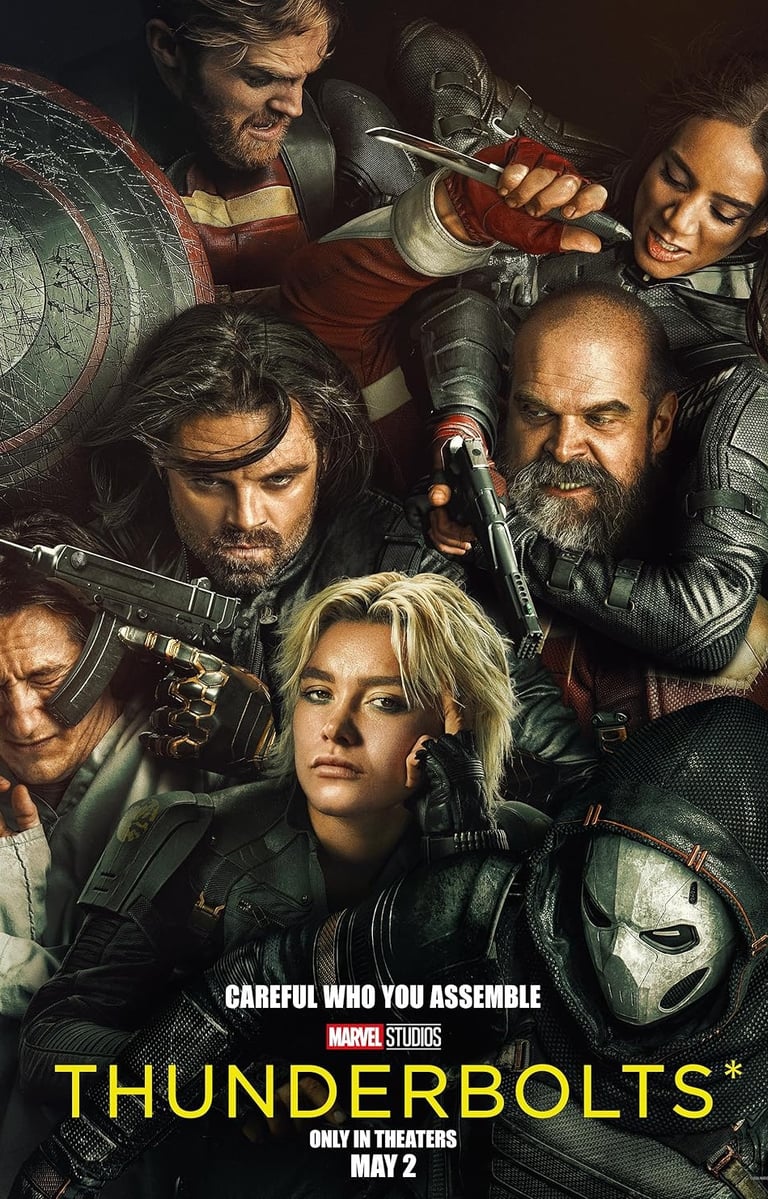



As an Amazon Associate, I earn from qualifying purchases.
